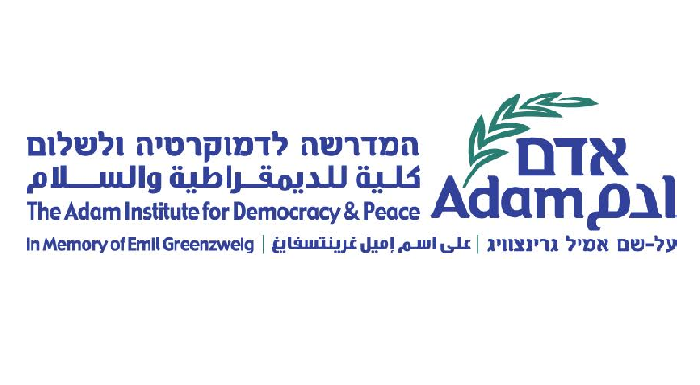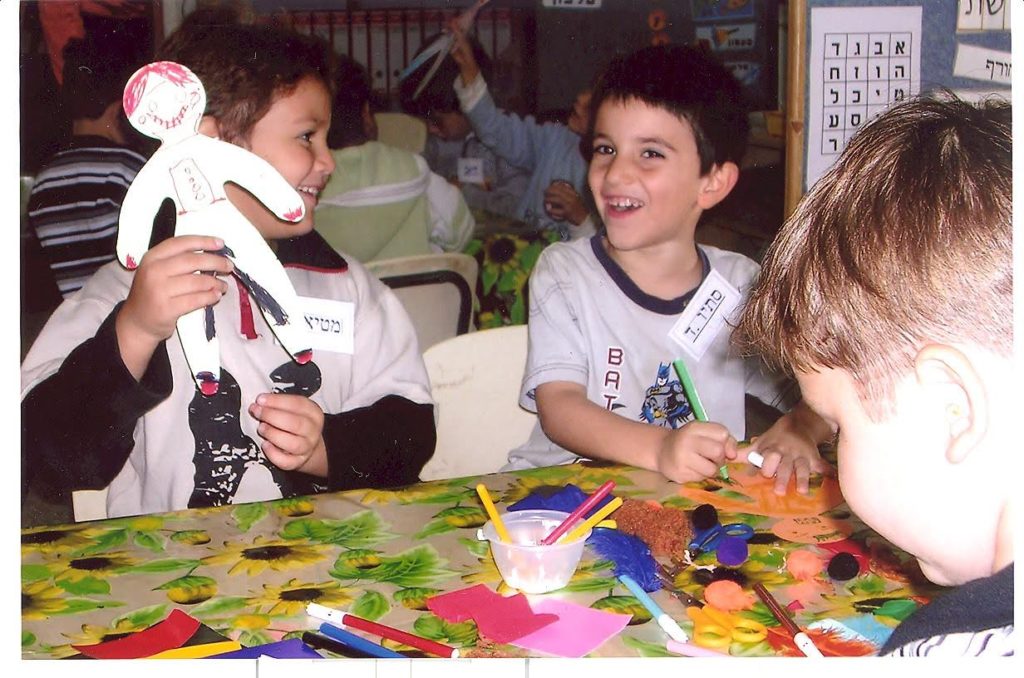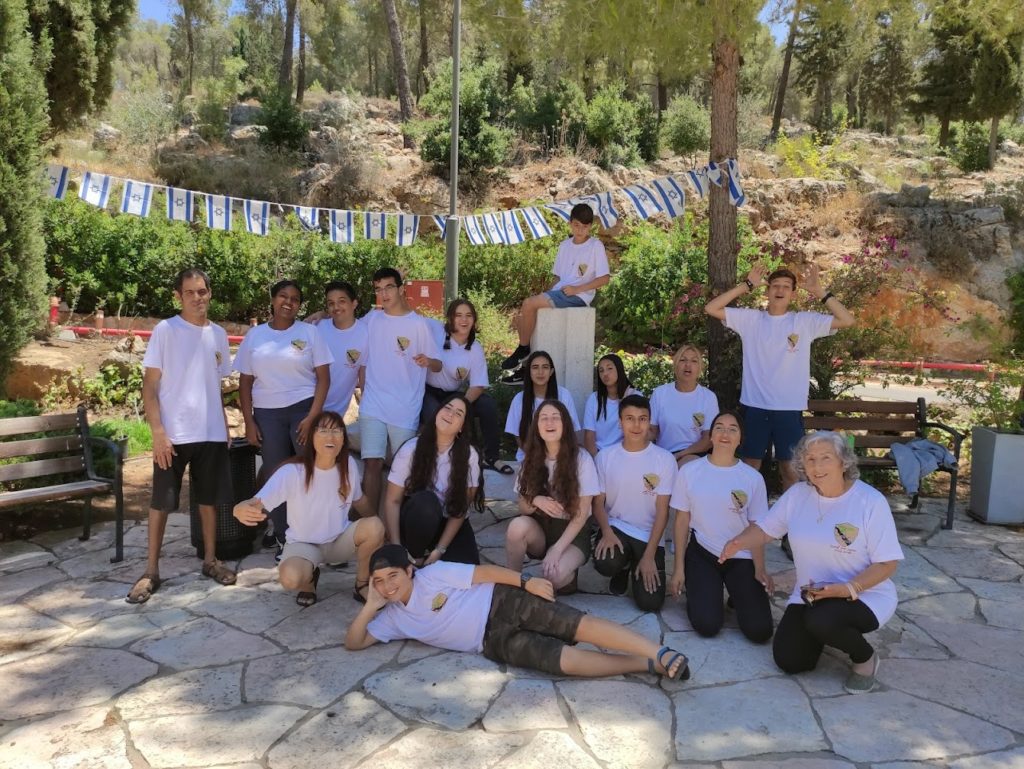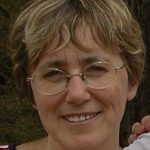
Dear All,
Many of you have reached out to check in and see how I’m doing, how we’re doing.
Thank you for your concern and caring. It means a great deal to me, to us.
In a sentence, we’re safe, yet heartbroken. We’re fine, but not okay.
Israeli society is enduring very difficult times since the brutal attack on the communities near the Gazan border and other cities throughout Israel. The level of cruelty carried out against children, elderly, young people and security personnel has left those of us who believe in human goodness amazed, pained and angry. We’re gravely concerned about the 230 hostages including babies, elderly and peace activists with whom we have had long-standing relations for many years. Our hearts are broken for the 1400 who were killed and the hundreds who were injured. The personal and collective trauma is great. For example, Kibbutz Be’eri has 107 residents killed or lost/kidnapped – that’s almost 10% of their inhabitants. That is proportional to New York City losing 800,000 people. (The numbers may have gone up – it’s so hard to keep track of it all.)
Some of you have asked about how you can help. What particular projects can you support to have an impact and foster wellbeing?
As many of you know, our nonprofit has been working in the field for more than thirty years, including extensive educational programs in southern Israel. In addition to general digital programming that we’re tailoring for students, teachers and parents nationally to address these especially challenging times, we’re focusing on two communities with whom we have a longstanding relationship and where we can have a valuable and direct impact.
1. TEEN LEADERS IN OFAKIM– We have a particularly warm, strong relationship with the Hosen Resilience Center’s Democratic Youth Leaders in Ofakim, a low-income city on the Gazan border. Ofakim suffered 50 casualties in this horrific war, and many residents were injured (Population 33,519).
The Democratic Youth Leadership group is an amazing cross-generational multi-ethnic group comprising Ashkenazim, Mizrachim, Ethiopian Israelis, neurotypical participants with an older participant with disabilities, different socioeconomic backgrounds and faith identities. We’ve run seminars on democratic principles, conflict resolution/mediation, and the connection between democracy and environment. It’s foundational work for teens who live in Israel’s geographic, economic and social periphery, disadvantaged in several realms. These acute disparities shape social status, income, access to education and social services. We wanted to equip young people with tools to bolster their education and afford them tools for social change. It’s been a great success.
Now we seek to give them a calm, peaceful place to heal. They love coming to the soothing pastoral Jerusalem Forest, where our offices are located. It’s near Yad Vashem, an ocean of greenery and quiescence. We’d like to raise money for a wellbeing seminar after the war that will allow them healing togetherness time in familiar surroundings. A one-night seminar including accommodations costs $5000. If we raise more, we can extend it to two nights or do a second seminar. If the spirit moves you, you can support these programs via this link or share with anyone else who’d like to do so.
Here’s a photo of the teens in the lovely forest during brighter days and more peaceful times.

I also want to share some video links that the teens prepared from previous seminars: this uplifting video preceded a seminar; this video captured the environmental seminar, and this link captured a previous seminar Ofakim.
2. BEDOUIN YOUNG LEADERSOur eyes and hearts are also with the Bedouin villages, recognized and unrecognized, in the Southern Negev desert, where we’ve run educational programming and have many colleagues and friends. The victims of the October 7th attack by Hamas include 19 members of the Negev Bedouin Arab community and 7 hostages. Many live below the poverty line, and about half live outdoors. They lack proper protective structures, and Bedouin children were also killed. Some 60 percent of the community is under 18.
In the past two years, the Adam Institute has run educational programs for the student leadership program of Desert Stars Institute, which brings together mission-driven young people to realize their individual and collective potential as change-making leaders. The programs are especially important because the economic, social and civic disparities are even more amplified among the Bedouin population, with its patriarchal tradition and complexity of its socio-demographic structure.
About 130 Bedouin young leaders were given democratic tools for social change, using “Betzavta- Adam Institute’s facilitation method“. For many, this was the first time to explore the right to equality, housing, civic rights, women’s rights, etc… They requested additional programs for this year, and we would like to accede that request. Here’s a photo from a previous seminar:

Learning happens through discovery – strengthening identity and granting legitimacy to all kinds of feelings/perspectives. Drawing on decades of experience, the Adam Institute is creating educational materials for students nationwide. That includes children.
3. CHILDREN’S LEARNING IN WARTIME: The Adam Institute’s programming for ages 5-8 comprises stories, songs, art and play to facilitate emotional expression, bolster a sense of belonging and validate difference in response to extreme situations. The program for ages 9-12, based on an experiential interactive exhibit, comprises games and educational tasks that teach discrimination, scapegoating, tolerance, diversity, and bullying. Participants learn equality, accepting difference, and the right to dignity; they’re encouraged to draw on personal experience. Both programs are suited to learning at home, in the classroom, or on Zoom.

Investing in youth is investing in our future. In the aforementioned examples, the youth leadership share lessons learned in Adam Institute seminars with peers in their programs, classrooms and communities, adding resonance and value. Children are given tools to process complicated events and their feelings in creative and constructive ways, with the support of their teachers and parents.
In times of war and distress, communal resilience provides a vital source of strength. We are a part of that right now. The young democratic leaders tell us that programs like ours helped foster solidarity and bolstes their ability to withstand extreme situations, like we’re facing today.
Initiating these projects is an attempt to do good for some young people who are going to need it. They’ve already told us as much. Helping children process these very trying times is also an overriding goal of ours.
Great educational responsibility rests on our shoulders. We’re committed to doing it. We’ll vigorously continue our work to promote Israeli democracy, shared living between Israeli Jews and Arab citizens of the state, and peace with the countries of the region.
It may sound lofty, but we know that there is no other way forward.
I won’t lie. These are painful and scary times.
We’d greatly welcome your partnership and support. This link takes you to our donation page, with various currency options available. Every sum will be allocated towards healing and building our future.
Please feel free to share this email with friends and individuals for whom our message might resonate. You may sign up for your mailing list via this link.
May we know better days.
In gratitude,
Uki
Executive Director
The Adam Institute for Democracy and Peaces
ukimaroshek@gmail.com/uki@adaminstitute.org.il

Uki Maroshek-Klarman Adam Institute for Democracy and Peace’s executive director and one of its founders. She created “Betzavta – Adam Institute’s facilitation method” to make democracy education accessible to all. The method offers engaging, experiential learning rooted in philosophy, sociology, social psychology—and fun. Dr. Maroshek-Klarman has developed numerous programs on democracy, civic and peace education and published books and articles. She has a doctorate in political philosophy from Tel Aviv University.
czytaj więcej
We would like to inform, that Observer Research Foundation has published article of Krzysztof Zalewski - the Boym Institute Analyst, Chairman of the Board and Editor of the “Tydzień w Azji” weekly.
Krzysztof ZalewskiOnline Course: “Conflict Resolution and Democracy”
The course will be taught via interactive workshops, employing the Adam Institute’s signature “Betzavta – the Adam Institute’s Facilitation Method“, taught by its creator, Dr. Uki Maroshek-Klarman. The award-winning “Betzavta” method is rooted in an empirical approach to civic education, interpersonal communication and conflict resolution.
We would like to inform, that Financial Intelligence has published interview for Balkan Development Support with Patrycja Pendrakowska.
Book review: “Unveiling the North Korean economy”
Book review of "Unveiling the North Korean economy", written by Kim Byung-yeon and published by Cambridge University Press in 2016.B. Tauris in 2017.
Nicolas LeviTSRG 2021: The Impacts of the BRI on Europe: The Case of Poland and Germany
It is important to contribute to the understanding of what the New Silk Road can mean in economic, political, leadership and cultural terms for the European countries involved. This analysis should reveal the practical consequences of the Belt and Road Initiative for Europe in the case of Poland and Germany, as well as their respective social effects.
Polish women do not often become the heroines of media reports in Central Asia. In February 2020, however, it was different. The story of Agnieszka Pikulicka-Wilczewska, a journalist, "heated up" the headlines of local news portals. More importantly, "between the lines" she talked a lot about contemporary Uzbekistan and the role of women in politics.
Magdalena Sobańska-CwalinaThe Boym Institute message to Indian policymakers and analysts
India’s current position towards the Russian invasion on Ukraine may damage its reputation as a major force of peace in the world
WICCI’s India-EU Business Council – a new platform for women in business
Interview with Ada Dyndo, President of WICCI's India-EU Business Council and Principal Consultant of European Business and Technology Centre
Ada DyndoTo free oneself from the Chinese embrace. On Indo-Russian relations with Nandan Unnikrishnan
Interview with Nandan Unnikrishnan, who has served for many years as a correspondent for Indian media in Russia. Currently he is a research fellow at the Observer Research Foundation in Delhi. The interview was conducted during the Raisina Dialogue 2019 in Delhi.
Krzysztof ZalewskiDrug and Road Initiative, that is the Silk Road of drug
This paper deals with the issue of drug business in post-Soviet Central Asia, a region that plays a key role in the trafficking of banned substances from Asia (mainly Afghanistan) to Europe. The study briefly presents the areas that make up the picture of drug business in Central Asia, paying attention to production and distribution.
Jerzy OlędzkiThe North Korean nuclear dismantlement and the management of its nuclear wastes
Evidence suggests that North Korea stores its high-level nuclear waste (HLW) in liquid form in tanks on the same site where it is made, and has not invested in infrastructure to reduce, dentrify, or vitrify this waste. However, this is just the tip of the iceberg, one of many aspects of the North Korean nuclear waste problem.
Nicolas LeviAdam Institute for Democracy & Peace – Crowdfunding Campaign December 2020
Democracy in Israel is in crisis. And if we don't educate for democracy, it just won't exist. It's that simple. The actual teaching of democracy, on the other hand, isn't so simple. It requires experience, theoretical and practical knowledge and the flexibility to adapt to our ever-changing reality.
Foreign Direct Investment in Vietnam
Thanks to continuous economic development, Vietnam attracts a record number of Foreign Direct Investment (FDI). The catalyst for such a strong growth of FDI in Vietnam is not only the ongoing trade war between the US and China, but also new international agreements.
Jakub KrólczykIndia, China and the Shades of Grey
"We are at an inflection point in this century. Many of our traditional arrangements are failing. To achieve stability in this century we need to discover new solutions" - Interview with Samir Saran - Senior Fellow and Vice President at the Observer Research Foundation
Krzysztof ZalewskiIn the first part of this analysis of Ulaanbaatar’s winning 2040 General Development Plan Conception (GDPC) I look into the historical preconditions for the city’s planned development as well as present the legislative climate in which works on Ulaanbaatar’s future development strategies have recently found themselves.
Paweł SzczapLiquidation of the Polish colony in Manchuria (north-eastern China)
Ms. Łucja Drabczak - A Polish woman born in Harbin, she spent her childhood in China. She returned to Poland at the age of 10. She is the author of the book 'China... Memories from my childhood'. She contacted us to convey special family memories related to leaving Manchuria in 1949.
China’s Social Credit System – How will it affect Polish enterprises in China?
The Social Credit System currently being rolled out in China may pose significant organisational and legal challenges for both foreign and Polish entities operating in China. We invite you to read our report, prepared in cooperation between the Boym Institute and Kochanski & Partners.
Patrycja PendrakowskaWomen in Public Debate – A Guide to Organising Inclusive and Meaningful Discussions
On the occasion of International Women's Day, we warmly invite you to read our guide to good practices: "Women in Public Debate – A Guide to Organising Inclusive and Meaningful Discussions."
Ada DyndoShort summary of events at the Boym Institute
We want the Boym Institute to become a valuable platform of exchanging views, making valuable acquaintances and, above all, deepening knowledge. Therefore, we undertake the organization of many events: debates, lectures, and conferences.
Chinese work on the military use of artificial intelligence
Intensive modernization and the desire to catch up with the armed forces of the United States made chinese interest in the military application of futuristic technologies grow bigger.
Paweł BehrendtThe strategic imperatives driving ASEAN-EU free trade talks: colliding values as an obstacle
Recently revived talks aimed at the conclusion of an inter-regional free trade agreement between the Association of Southeast Asian Nations (ASEAN) and the European Union (EU) are driven by strategic imperatives of both regions.
Robin RamcharanAfter the darkness of the Cultural Revolution, the times of the Chinese transformation had come. In 1978, Deng Xiaoping realised the need to educate a new generation of leaders: people proficient in science, management and politics. Generous programmes were created that aimed at attracting back to China fresh graduates of foreign universities, young experts, entrepreneurs and professionals.
Ewelina HoroszkiewiczTranscultural Winter School 2021 (8th of November — 12th of November)
This year’s research project TSRG 2021 as a collaborative initiative between Leadership Excellence Institute Zeppelin and the Boym Institute continued with a Transcultural Winter School in Zeppelin University, in Friedrichshafen.
Patrycja Pendrakowska and Paweł Behrendt on navigating Sino-Polish relations
We are proud to annouce, that Patrycja Pendrakowska and Paweł Behrendt made a contribution to the latest project of the Baltic Security Foundation, The Jamestown Foundation and the Baltic-American Freedom Foundation.


